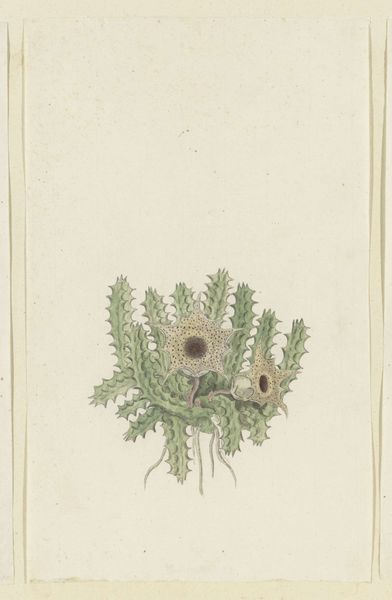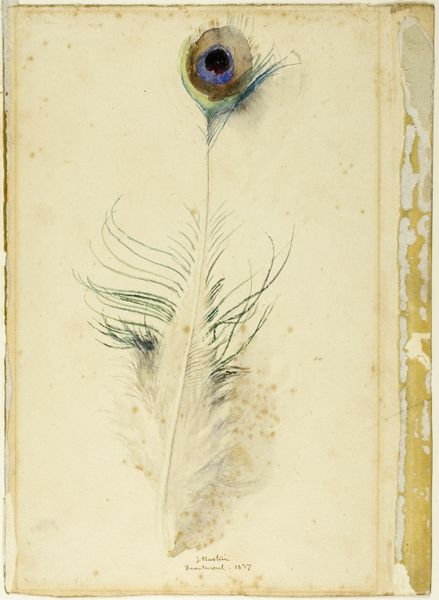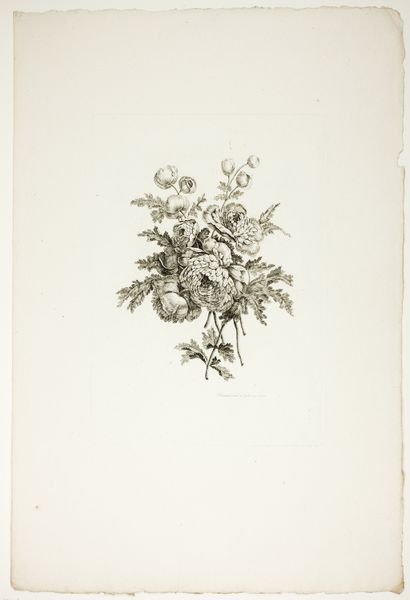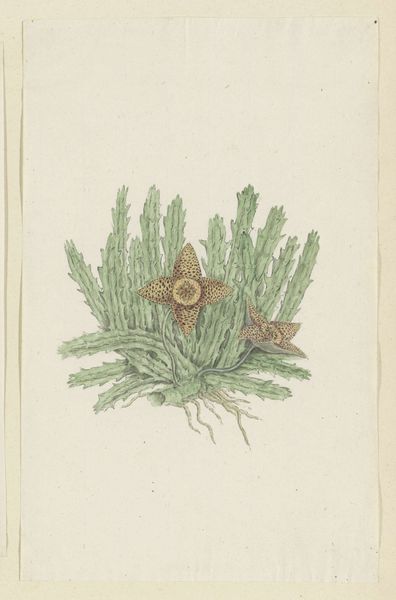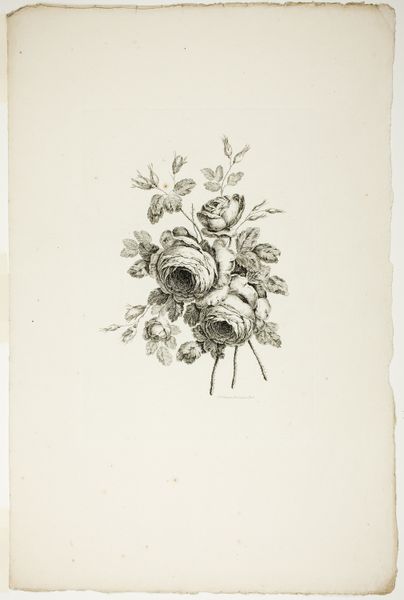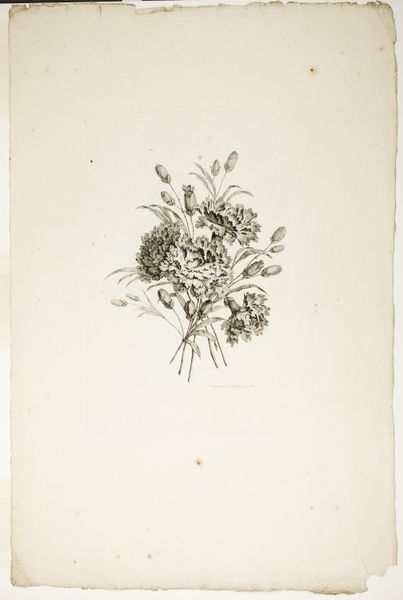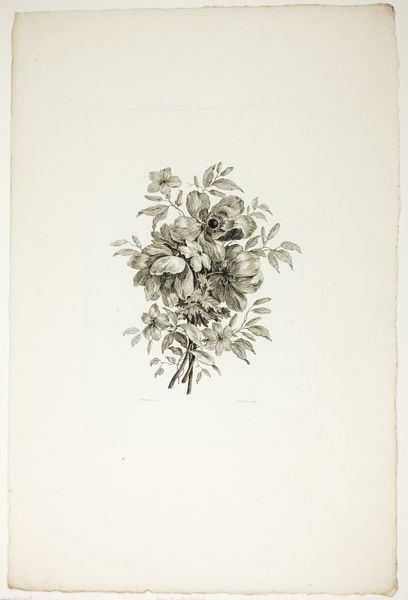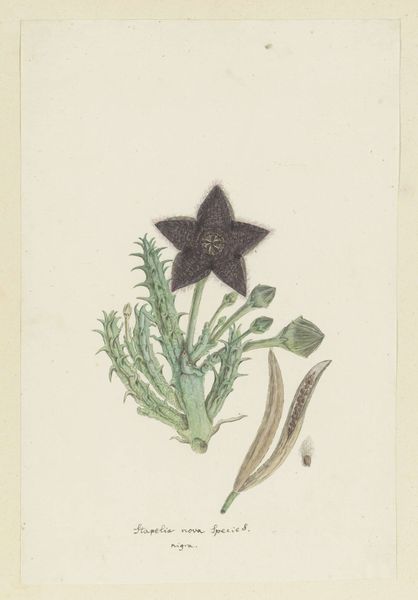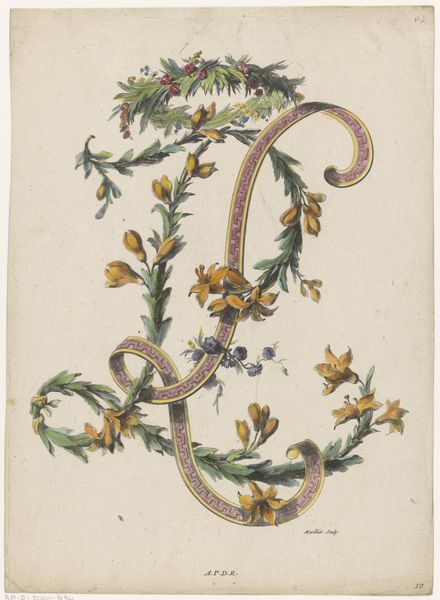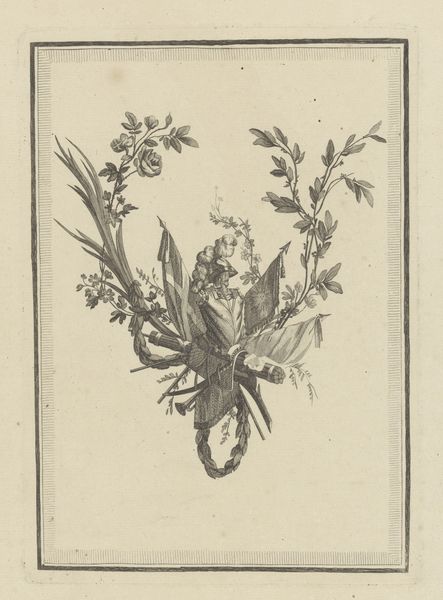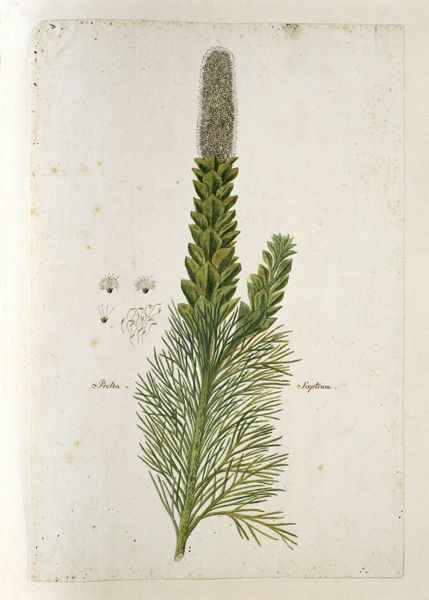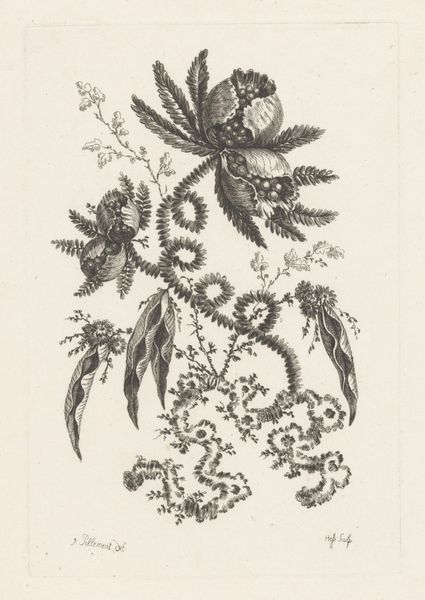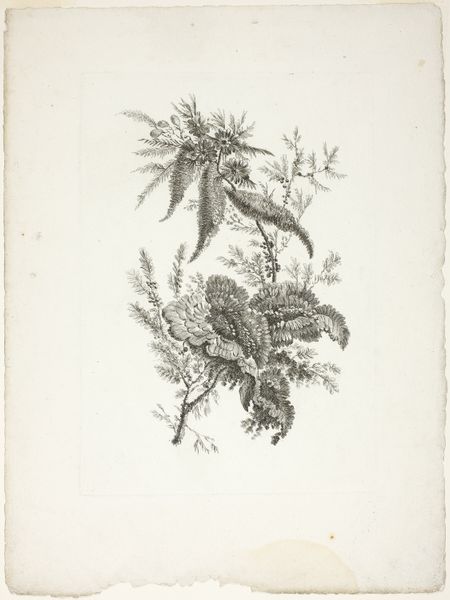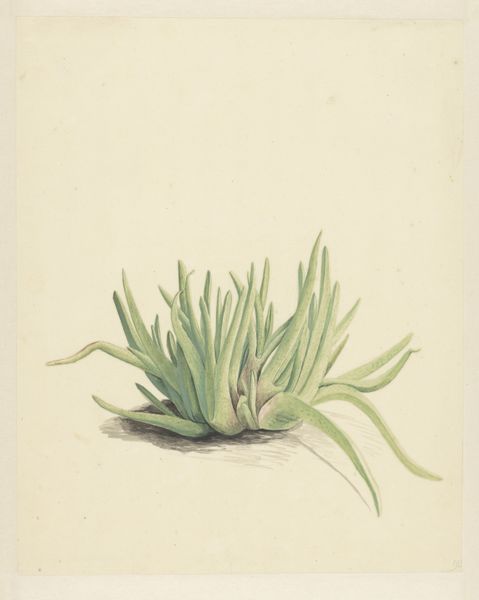
drawing, print, watercolor
#
drawing
#
toned paper
#
water colours
#
baroque
# print
#
flower
#
watercolor
#
coloured pencil
#
plant
#
botanical drawing
#
botanical art
#
watercolor
Dimensions: sheet: 11 1/8 x 9 5/8 in. (28.2 x 24.4 cm)
Copyright: Public Domain
Editor: This is Nicolas Robert’s "A Stapelia Variegata," made sometime between 1625 and 1685. It's a watercolor drawing, and I find the stark contrast between the delicate detail of the flower and the almost clinical depiction of the plant fascinating. What can you tell me about this piece? Curator: This drawing reflects the surge in scientific illustration during the Baroque period, tied to the era's imperial and commercial expansion. Aristocrats and apothecaries fueled demand for precise botanical renderings. Think about who had access to these images, and who did not. What power dynamics are at play? Editor: So it’s more than just a pretty picture? Curator: Exactly. Botanical illustrations became tools of knowledge and control. Exotic plants, newly 'discovered,' became status symbols. The level of detail, achievable with watercolor and drawing, speaks to scientific aspiration and, to some extent, a kind of colonial gaze. Do you notice how the flower dominates the composition? Editor: Yes, it’s almost like it’s presented as a trophy. Curator: Precisely. Robert's rendering, while beautiful, participates in a larger cultural project. The rise of natural history coincided with colonial exploitation, and the art became another form of appropriation. Knowing that changes how we view it, doesn't it? Editor: Absolutely. I'll never look at botanical art the same way again. It’s a reminder that even seemingly objective art can be deeply embedded in the socio-political context of its time. Curator: Indeed. By considering how these images functioned, who they served, we gain a richer understanding of their complex role in history.
Comments
No comments
Be the first to comment and join the conversation on the ultimate creative platform.
